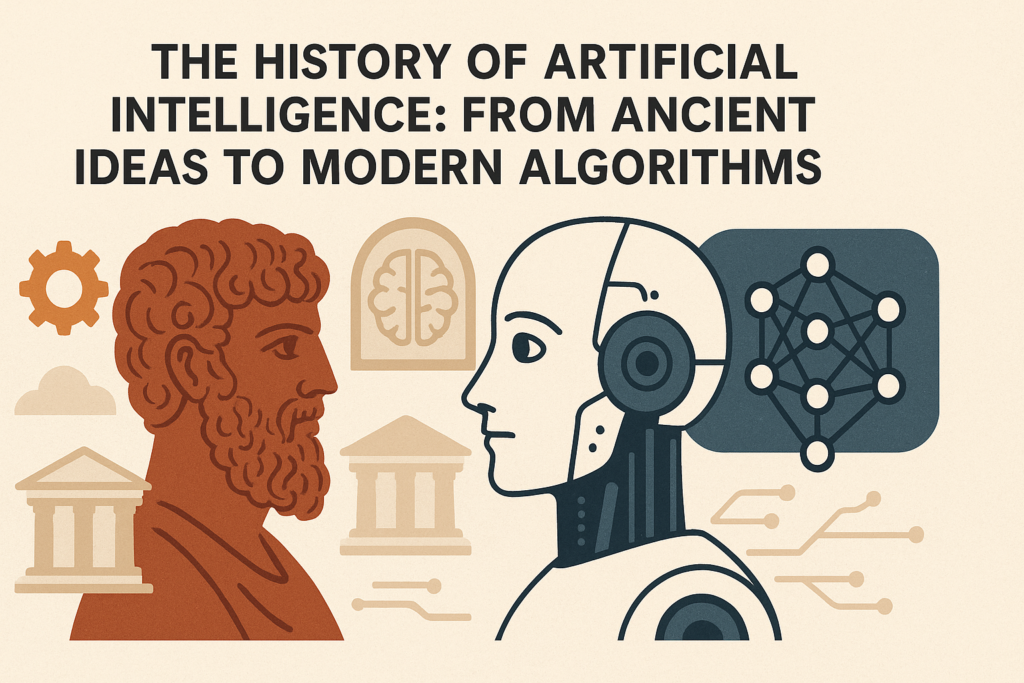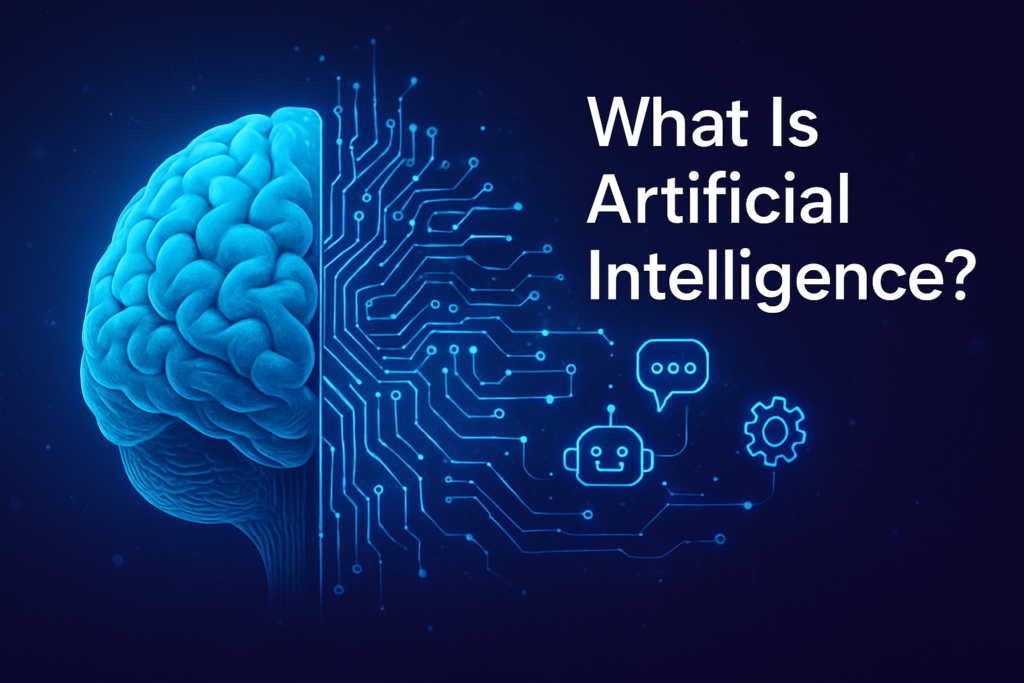Contents
- The Truth About AI Replacing Jobs – What You Really Need to Know
- The Hype vs. Reality: Is AI Really Taking Over Jobs?
- The Rise of AI-Augmented Jobs
- Which Industries Will See the Biggest Shifts?
- Who’s Safe (for Now)? The Human Skills AI Can’t Replace
- What This Means for Workers: Reskill or Risk Obsolescence
- For Businesses: Embrace AI, But Keep It Human-Centric
- Debunking Common Myths About AI and Jobs
- The Future of Work: Collaboration Between Human and Machine
- Policy and Ethical Considerations
- Final Thoughts: Fear Less, Prepare More
- Quick Takeaways
The Truth About AI Replacing Jobs – What You Really Need to Know
Artificial Intelligence (AI) is no longer just a futuristic concept—it’s a force actively reshaping industries, from manufacturing and logistics to marketing and healthcare. With rapid advancements in machine learning, natural language processing, and robotics, one pressing question continues to stir both anxiety and curiosity:
Will AI take our jobs?
This blog digs deep into the truth behind AI and job displacement, separating fear from fact. We’ll explore the reality of automation, how it’s transforming the workforce, and—most importantly—how individuals and organizations can adapt to thrive in this AI-powered era.
The Hype vs. Reality: Is AI Really Taking Over Jobs?
The idea that AI will trigger mass unemployment isn’t new. Historical tech shifts—from the Industrial Revolution to the rise of computers—sparked similar fears. Each time, technology reshaped job roles but also created new opportunities that didn’t exist before.
Yes, AI will replace certain jobs—especially those involving repetitive, rule-based tasks. But at the same time, it will also create new roles, industries, and even entirely new economies.
Jobs at Risk
According to a 2023 McKinsey report:
- 800 million jobs could be displaced by automation by 2030.
- However, 555 million new jobs could be created through new technologies, demand shifts, and increased productivity.
Jobs most vulnerable include:
- Data entry clerks
- Telemarketers
- Basic customer service reps
- Manual manufacturing roles
These positions are at risk not because they are unimportant, but because machines can perform these tasks faster, cheaper, and with fewer errors.
Learn more:- How AI Is Changing Everyday Life
The Rise of AI-Augmented Jobs
Instead of wiping out jobs, AI is more likely to augment them, enhancing human capabilities rather than replacing them entirely.
For instance:
- Marketing professionals now use AI for predictive analytics, personalized content creation, and campaign automation.
- Doctors use AI tools to detect diseases earlier with more accuracy (e.g., AI-assisted radiology).
- Teachers integrate AI platforms to personalize learning and track student progress in real-time.
In these scenarios, AI doesn’t replace the human role; it makes it more efficient and impactful.
Read More:- The Truth About AI Replacing Jobs
Which Industries Will See the Biggest Shifts?
Here’s how AI will impact some key sectors:
1. Healthcare
- AI Use: Diagnostics, drug development, administrative automation
- Jobs Transformed: Doctors, researchers, and medical coders
- AI’s Impact: Enhances diagnosis accuracy, speeds up research, and reduces paperwork.
2. Manufacturing
- AI Use: Predictive maintenance, robotics, supply chain optimization
- Jobs Transformed: Assembly workers, plant managers
- AI’s Impact: Increases output with fewer errors, but displaces manual roles.
3. Retail & E-commerce
- AI Use: Chatbots, recommendation engines, inventory management
- Jobs Transformed: Sales reps, customer service agents
- AI’s Impact: Boosts sales with personalization, reduces the need for front-line service staff.
4. Financial Services
- AI Use: Fraud detection, risk analysis, trading algorithms
- Jobs Transformed: Analysts, customer advisors
- AI’s Impact: Enhances risk detection and portfolio optimization but automates many advisory roles.
5. Creative & Marketing
- AI Use: Content creation, campaign optimization, SEO automation
- Jobs Transformed: Writers, designers, digital marketers
AI’s Impact: Speeds up production but still relies on human creativity and strategy.
Who’s Safe (for Now)? The Human Skills AI Can’t Replace
Despite AI’s growing capabilities, it lacks the emotional intelligence, creativity, and ethical judgment that many jobs require. The safest roles are those that rely on:
- Critical thinking and problem-solving
- Emotional intelligence and empathy
- Creativity and original thinking
- Cross-disciplinary collaboration
- Strategic decision-making
Jobs such as therapists, educators, creative directors, social workers, and strategic consultants remain largely human-led because they involve contextual understanding and emotional nuance, which machines still struggle with.
What This Means for Workers: Reskill or Risk Obsolescence
The most critical takeaway? Adaptability is your greatest asset.
The World Economic Forum estimates that 50% of all employees will need reskilling by 2025. But that’s not necessarily a bad thing. The rise of AI opens doors for career growth—if you’re willing to evolve.
Top Future-Proof Skills:
- Data literacy and analytics
- AI and machine learning fundamentals
- Digital marketing and automation
- Emotional and social intelligence
- UX design and human-centric thinking
- Cybersecurity and data ethics
Learning Paths to Consider:
- Online platforms like Coursera, Udemy, LinkedIn Learning
- Company-sponsored upskilling programs
- Bootcamps focused on tech, data, or AI-related fields.
- Certification programs in project management, data analytics, or UX design
Upskilling and reskilling are no longer optional—they’re essential for career survival and growth.
For Businesses: Embrace AI, But Keep It Human-Centric
While AI offers cost savings and efficiencies, a machine-first mindset can backfire. Businesses must take a human-in-the-loop approach to AI.
Strategic Tips for Leaders:
- Audit tasks, not roles. Identify what parts of a job can be automated vs. where the human touch is crucial.
- Invest in employee training. Don’t just buy tech—equip your workforce to use it.
- Balance automation with personalization. Use AI for scalability but preserve the human element in customer experiences.
- Ethics and compliance. Implement strong AI governance frameworks to prevent biases and maintain transparency.
A future-ready business is not just tech-savvy but also employee-conscious and customer-focused.
Debunking Common Myths About AI and Jobs
Let’s bust a few popular misconceptions.
Myth 1: AI will make humans obsolete.
Truth: AI is a tool, not a replacement for human ingenuity. It extends human capabilities rather than eliminating them.
Myth 2: Only tech jobs are safe.
Truth: Non-tech roles are also evolving. For example, teachers use AI for personalized instruction, and chefs use AI to experiment with new recipes.
Myth 3: Reskilling is only for young people.
Truth: Lifelong learning is essential for everyone. Many companies are encouraging mid-career workers to pivot by funding upskilling initiatives.
Myth 4: AI is infallible.
Truth: AI can make biased or erroneous decisions based on flawed data. Human oversight is crucial.
The Future of Work: Collaboration Between Human and Machine
The future of work isn’t about man vs. machine—it’s about man + machine.
AI thrives when used to support human decision-making, not replace it. Think of it like Iron Man’s suit—it doesn’t do the work for him, it amplifies his strengths.
The future belongs to those who can:
- Leverage AI to solve problems creatively
- Combine soft skills with digital fluency.
- Continuously adapt to new tools and platforms.
In this hybrid environment, human-AI collaboration becomes a competitive advantage, not a threat.
Policy and Ethical Considerations
Governments and institutions must also play a role in managing the AI-job transition.
Key areas of focus include:
- Universal access to education and training
- AI transparency and accountability standards
- Job transition support programs (e.g., UBI, retraining stipends)
- Stronger data privacy laws to govern AI use
A responsible transition means leaving no one behind as we modernize our economies.
Final Thoughts: Fear Less, Prepare More
The truth about AI and jobs is nuanced.
Yes, disruption is happening, and some jobs will disappear. But new jobs, industries, and opportunities are emerging alongside them. Instead of fearing change, we must focus on reskilling, adaptability, and embracing innovation.
AI is not here to replace humans—it’s here to empower us. Those who view AI as a partner rather than a rival will be best positioned for success in the future of work.
Quick Takeaways
- AI will displace some jobs, but also create many new ones.
- Human-AI collaboration is the future of work.
- Emotional intelligence, creativity, and strategic thinking remain uniquely human strengths.
- Reskilling is essential to thrive in an AI-driven economy.
Businesses must blend automation with empathy and ethics.
Want to stay ahead in the AI era? Start by investing in your learning, staying curious, and embracing tools that help you work smarter, not harder.



